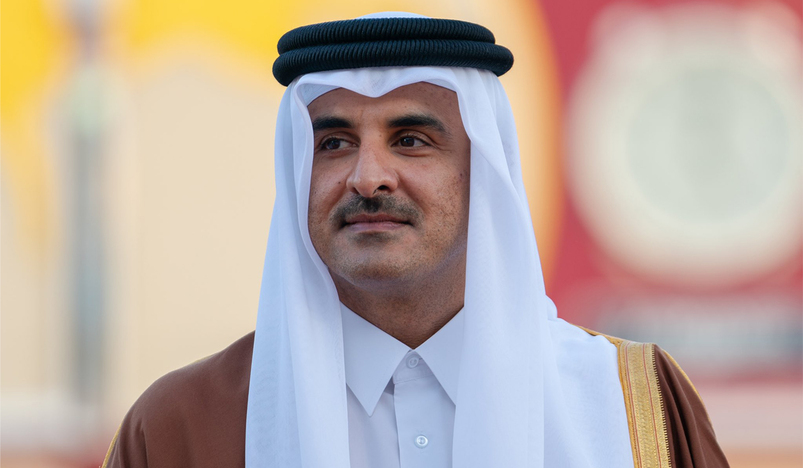
The Amir HH Sheikh Tamim bin Hamad Al Thani
The Amir HH Sheikh Tamim bin Hamad Al Thani will head the delegation of Qatar for the 42nd session of the Supreme Council of the Cooperation Council for the Arab States of the Gulf (GCC), which will be held tomorrow (Tuesday) in the city of Riyadh in Saudi Arabia.
42nd GCC Summit Kicks off Today in Riyadh
Saudi Arabia will host today, Tuesday, the 42nd Gulf Cooperation Council (GCC) Summit, amid vital developments in the region and the world.
Riyadh will host the new summit for the fourth time in a row with the agenda including several topics that would contribute to strengthening cooperation and integration between member states in various fields, in addition to discussing regional as well as international developments and their impact on GCC countries.
Kuwait signing Al-Ula agreement last Jan.5, on the sidelines of the 41st Gulf Summit, was followed by bilateral visits between the leaders of the Gulf States to strengthen relations.
The summit will be held following exceptional circumstances that the world has experienced during the past two years due to the COVID-19 pandemic, which calls for discussing the repercussions of the pandemic on the Gulf countries, especially the economic aspect.
Established in 1981, the GCC promotes economic, security, cultural and social cooperation between the six states and holds a summit every year to discuss cooperation and regional affairs.
One of the most prominent stages of the Gulf Cooperation Councils march is the establishment of the GCC Common Market, which provides many benefits, including ensuring the flow of goods between GCC countries, which leads to an increase in competition between Gulf institutions for the benefit of the consumer. The GCC countries also established the free economic zone, which is mainly characterized by exempting the industrial and agricultural products of the GCC countries and the products of natural resources from customs duties.
The free economic zone entered into force in March 1983, and lasted for about twenty years until the end of 2002 when the GCC Customs Union replaced it.
Among the most important stations and projects of the GCC council is the adoption of the comprehensive security strategy for its member states, as well as the joint security agreement for the GCC states.
The joint military action has also attracted the attention of their Majesties and Highnesses, the GCC leaders since its inception, and among the most prominent achievements is the approval of the joint defense agreement of the Gulf Cooperation Council, the defense strategy of the Gulf Cooperation Council, the formation of the Peninsula Shield Force, and the conduct of joint military exercises.
The GCC states cooperate extensively in all sectors of environment, as well as with organizations working in the field of environmental protection and conservation of its natural resources. GCC countries joined 33 regional and international conventions and treaties in the field of environment, protection of wildlife and natural resources, biodiversity, protection of the ozone layer, climate change and combating desertification, as well as the Convention on International Trade in Endangered Species of Wild Fauna and Flora.
SOURCE: QNA
.jpg)
Qatar Secures Place Among the World's Top 10 Wealthiest Nations
.jpg)
Hamad International Airport Witnesses Record Increase in Passenger Traffic

Saudi Arabia: Any visa holder can now perform Umrah

What are Qatar's Labour Laws on Annual Leave?
Leave a comment